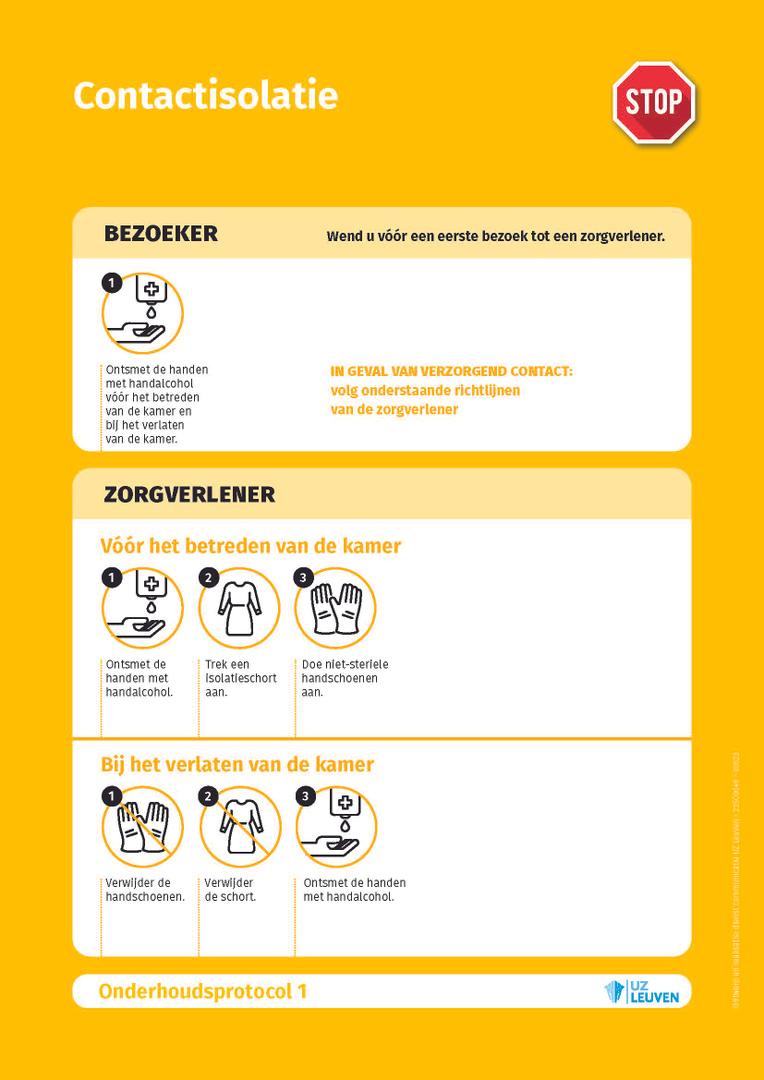What's rooming-in?
As a child-friendly hospital, we give the opportunity to a trusted person (e.g. a parent or grandparent) to spend the night in the child's room.
This means that that person shares the room with the child. The child and the rooming-in person remain together in isolation and therefore stay in the room as much as possible.
For rooming-in to run smoothly, a number of commitments apply. You will find more detailed info on these on this page.
In brief: rooming-in commitments
-
Stay in your room as much as possible and do not enter common areas of the ICU (e.g. the kitchen, the nursing hub, the ward toilet, etc.).
-
Keep the room door closed as much as you can.
-
Keep the room neat and tidy.
-
Call when you need something or have questions.
-
Disinfect hands thoroughly before leaving the room and the intensive care unit.
Why all these commitments?
Firstly, we want to prevent your child or grandchild from contracting an (additional) infection. On the other hand, we also want to protect other patients from a possible infection.
What is expected of you as a trusted person?
Stay in the room
Stay in the room with the child as much as possible. Do not enter other parts of the intensive care unit (e.g. the kitchen, the nursing hub, etc.) and call the nurse if you have any questions or need anything. They will come to you as soon as possible.
If you do have to leave the room, such as to visit the toilet, disinfect your hands thoroughly and leave the ICU immediately. Only use the sanitary facilities in the visitors' corridor. To ensure infection prevention, the toilet on the ICU is for patients only.
In consultation with the nurse, you may use the ICU's shower. This is cleaned and disinfected immediately afterwards by the cleaning team.
Meals
You will receive hospital meals in your room, provided you pay a daily supplement. You can also have breakfast (outside visiting hours) in the waiting room in the visitors' corridor, preferably immediately after showering with clean clothes.
Avoid excess material in the room and keep it tidy. This makes care and cleaning much easier.
Visits
Visits are kept to a minimum (see the visiting rules here). Children under 12 are not allowed to visit unless with the permission of the attending physician.
Visitors are to leave their coats and bags in the lockers provided at the entrance of the ICU. The lockers can be locked with a 2-euro coin.
If there is a risk of infection to visitors, the isolation card at the room door will indicate which protective clothing the visitor should put on and in what order.
If pregnant women are not allowed to visit, this is also indicated on the isolation card.
Every visitor must disinfect their hands thoroughly, both before entering and when leaving the room.
Play and education
During a prolonged hospital stay and if the child's condition allows, they may attend the hospital school or be taught in the room.
Toys may be brought from home. Please note that only toys that can be easily cleaned and disinfected are permitted.
You can also ask the nurse for toys from the hospital.
What if your child is being cared for in isolation?

An infection can be spread through various ways. Most often, infection is transmitted through the hands.
If your child is being cared for in isolation, it is to reduce the risk of spreading infection to other patients. Therefore, isolation measures also apply to the rooming-in person and visitors.
The isolation card at the door states the guidelines for entering the room, both for caregivers and visitors.
In this case, your child cannot attend the hospital school, but will be taught in the room if possible.